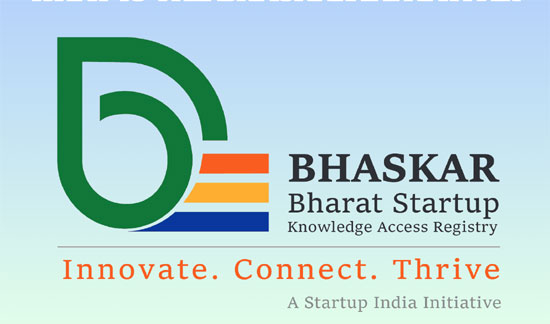Daijiworld Media Network – Bengaluru
Bengaluru, Sep 6: Karnataka has emerged as the state with the second-highest number of startup registrations on the Bharat Startup Knowledge Access Registry (BHASKAR) portal. As of June 30, 2025, a total of 20,004 entities from the state have registered.
According to statistics presented in the Rajya Sabha during the monsoon session of Parliament, Maharashtra tops the list with 33,845 registrations, while Karnataka stands second. Union Minister of State for Commerce and Industry Jitin Prasada shared this information in a written reply to a question raised by Karnataka MP Iranna Kadadi.

BHASKAR, launched under the Startup India initiative, is designed to centralize, streamline, and enhance collaboration among key stakeholders in the entrepreneurial ecosystem. These stakeholders include startups, investors, mentors, service providers, and government bodies. The initiative aims to strengthen the nation’s commitment to the innovation movement.
Through the BHASKAR portal, each registered entity is assigned a unique ID, which facilitates the implementation of various schemes under Startup India.
Uttar Pradesh ranks third with 19,382 registrations, followed by Delhi (18,972) and Gujarat (17,370). On the other hand, union territories such as Lakshadweep (5), Ladakh (25), and Sikkim (22) reported the lowest numbers.
Currently in its pilot phase, the BHASKAR portal is testing its core features before a wider rollout. These include personalization for different stakeholder categories and enabling both domestic and international collaborations.
Regarding promotional measures, the minister stated that the government is conducting targeted outreach for micro and small enterprises. Initiatives include awareness campaigns, workshops, and informational sessions across states and union territories. These efforts are being carried out in collaboration with state startup nodal agencies, incubators, accelerators, colleges, and universities.
According to the minister, such engagements are aimed at integrating the needs and experiences of stakeholders, including micro and small enterprises, into a larger national startup network. Details were also shared on the number of startups with BHASKAR IDs in each state, collaborations facilitated through the portal, linked schemes, and measures taken to promote rural entrepreneurship.